BBC swaps Eurovision Song Contest selection vote for record label deal
- Published
- comments
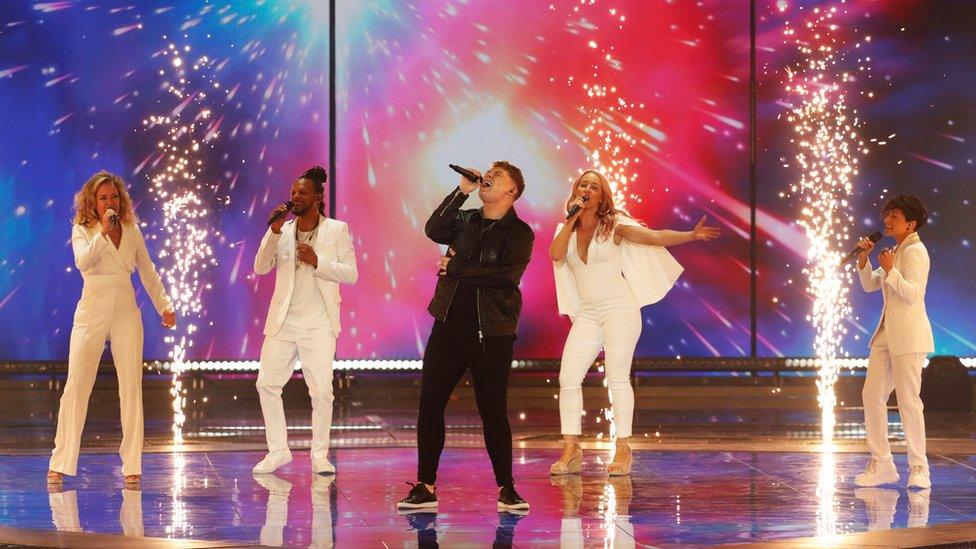
Michael Rice gave it his all at Eurovision 2019, but finished 26th out of 26
The BBC is to drop the public vote to select the UK's next Eurovision Song Contest entrant, instead teaming up with a record label for the first time.
It means there will be no Eurovision: You Decide, which has run since 2016.
Entrants were selected internally by the BBC for five years before that, but the broadcaster is seeking a new formula to boost the UK's results after Michael Rice finished bottom last year.
For 2020, music company BMG will choose the entrant and song with BBC Studios.
BBC Studios, the corporation's commercial arm, approached a number of record labels, and decided that BMG shared its "vision of selecting a song with broad international appeal and securing an artist who embodies the spirit and values of the Eurovision Song Contest".
BMG has both a publishing arm, which handles songwriters, and a group of record labels. Artists signed to the firm for both recording and publishing include Kylie Minogue, Bring Me The Horizon, Peter Doherty, Boy George and Simple Minds.
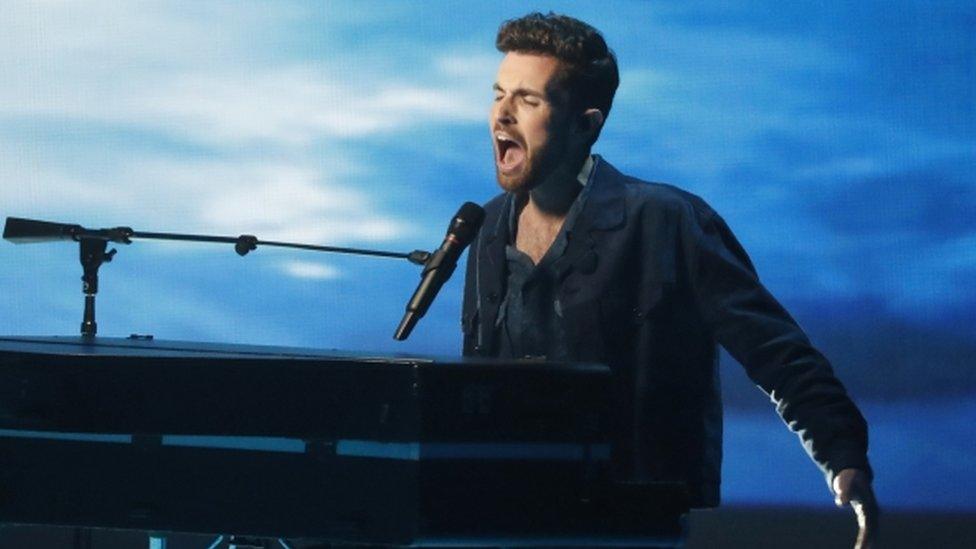
Duncan Laurence won the contest for the Netherlands in May
BBC Studios creative director Mel Balac said the deal with BMG, which will release and publish the chosen song, was a "turning point for the UK at Eurovision".
"We very much hope this marks the start of an exciting new chapter," Balac said.
Kate Phillips, BBC controller of entertainment commissioning, said: "Our commitment to finding the right song has never been higher and this collaboration with BMG, who have access to world class songwriters, is a genuinely exciting prospect and I am certain that together we can find the best song and artist possible for 2020."
Alistair Norbury, BMG's UK president of repertoire and marketing, said: "Eurovision plays to our strength as the only fully-integrated publishing company and record label. We can't wait to get started working with the BBC to give it the best possible shot we can."
The move was welcomed by some Eurovision pundits who had called for a shake-up of the selection process. Expert Paul Jordan, known as Dr Eurovision, told the BBC after this year's contest: "Without the record companies' involvement you're not going to get the great songs and songwriters coming through."
Allow X content?
This article contains content provided by X. We ask for your permission before anything is loaded, as they may be using cookies and other technologies. You may want to read X’s cookie policy, external and privacy policy, external before accepting. To view this content choose ‘accept and continue’.
Allow X content?
This article contains content provided by X. We ask for your permission before anything is loaded, as they may be using cookies and other technologies. You may want to read X’s cookie policy, external and privacy policy, external before accepting. To view this content choose ‘accept and continue’.
This move sees the end - for now - of the televised selection show, which has gone through various different versions over the years, including A Song For Europe, Making Your Mind Up and You Decide.
The UK has not won Eurovision since 1997, and has not finished in the top 10 since 2009. The next contest will take place in Rotterdam, Netherlands, in May 2020.

Follow us on Facebook, external, or on Twitter @BBCNewsEnts, external. If you have a story suggestion email entertainment.news@bbc.co.uk, external.
- Published23 May 2019
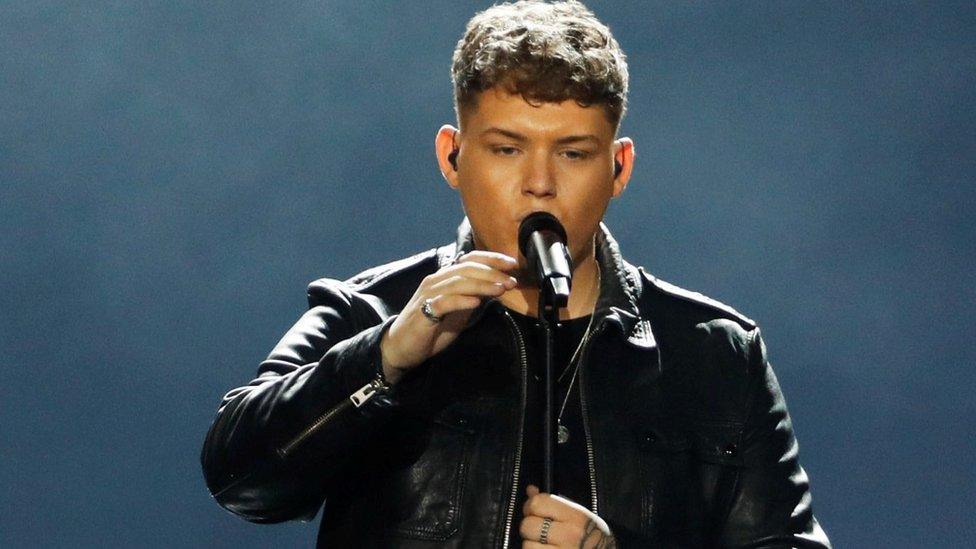
- Published20 May 2019
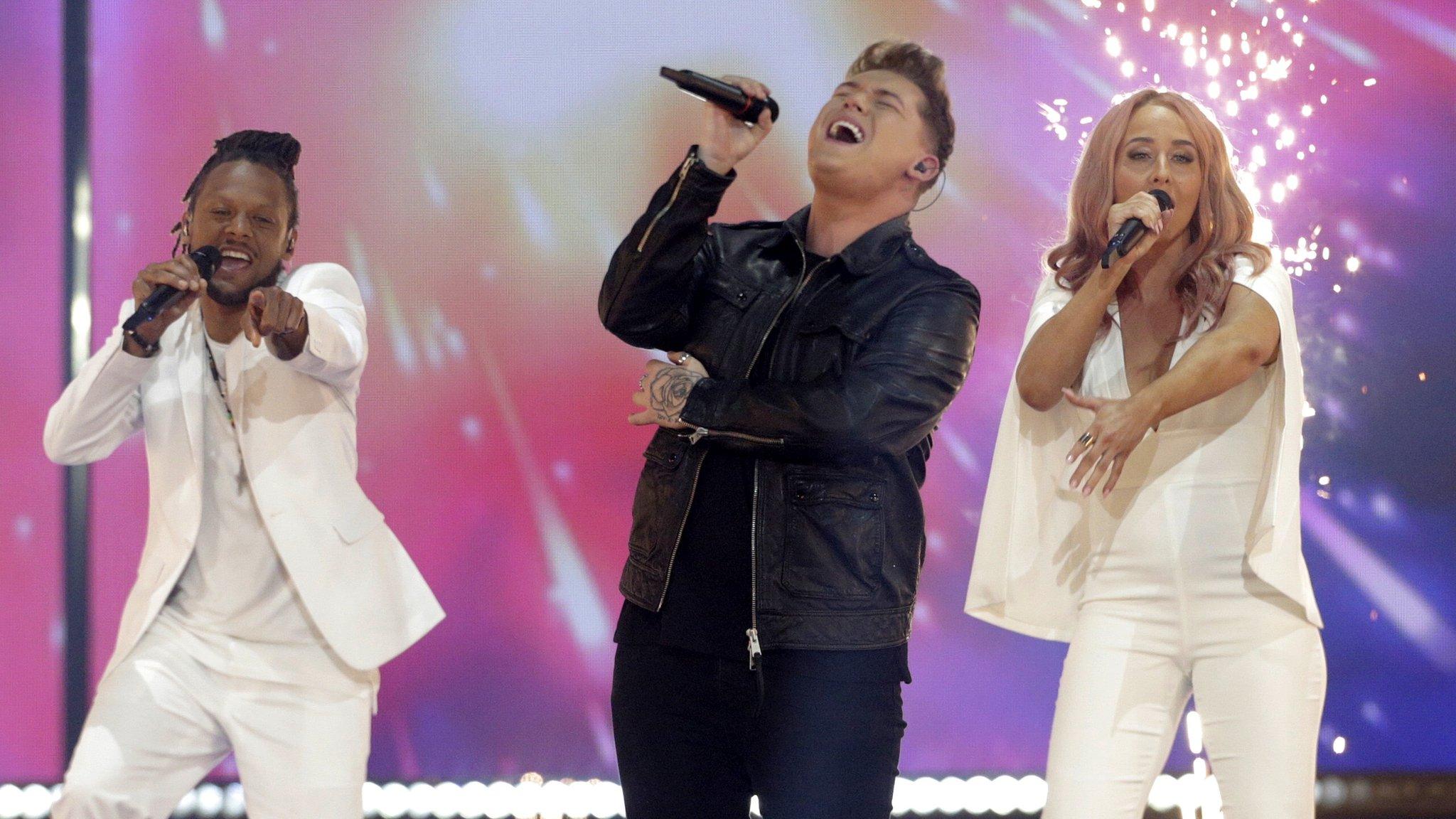
- Published19 May 2019
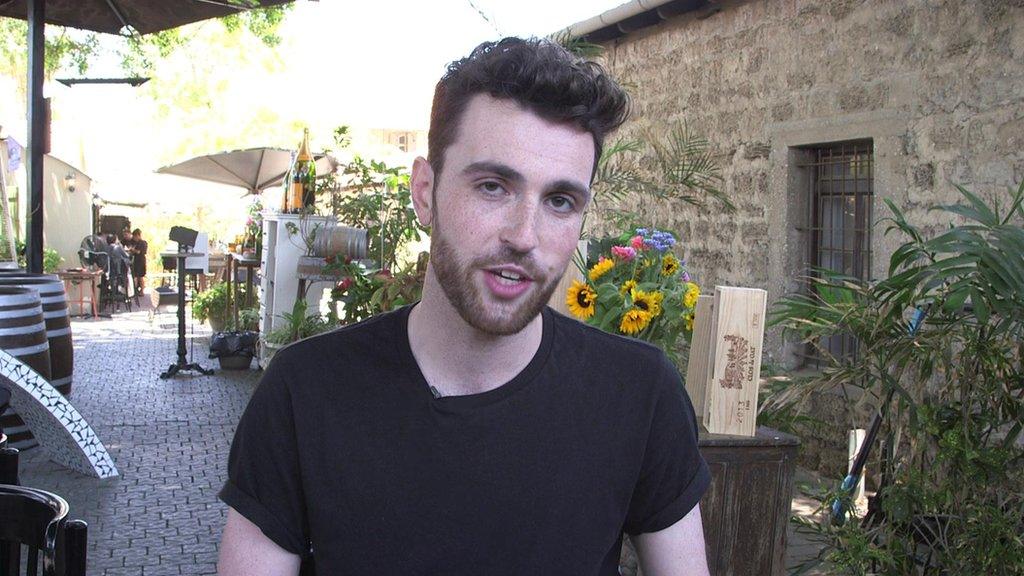
- Published19 May 2019
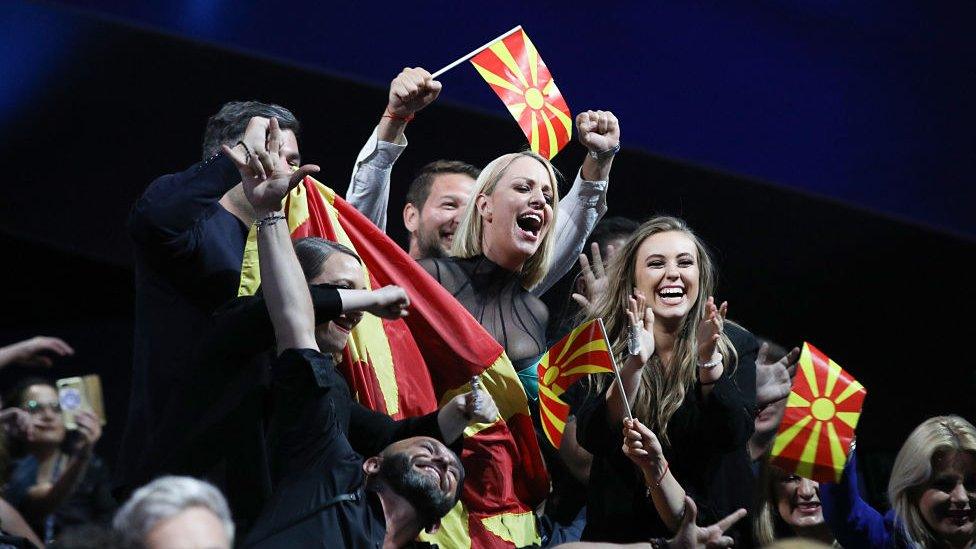
- Published19 May 2019
